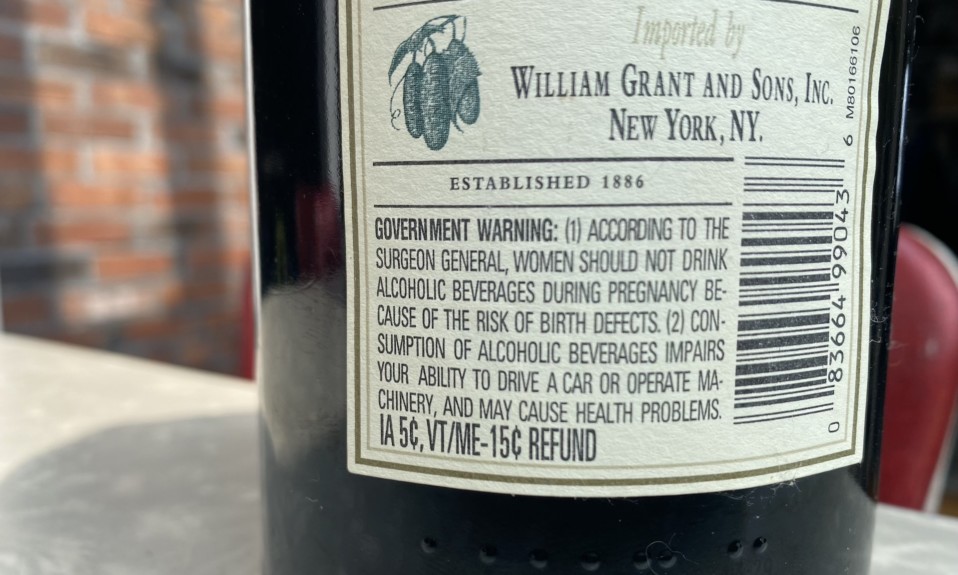Plus: A drop in opioids per prescription, and the potential link between Instagram and college drinking
By William Wagner
Despite the bright clinical spotlight that has been shined on alcohol use disorder (AUD) for decades, it continues to vex the treatment community. A study published in the June 2021 issue of Alcoholism: Clinical & Experimental Research indicates that many problem drinkers still aren’t receiving the help they need.
Alcohol use disorder is a chronic disease, but compared to other chronic diseases, it’s wildly untreated.”—Laura Jean Bierut, Washington University
In this week’s “From the Journals,” we also highlight the drop in the average size of opioid prescriptions, as well as the role Instagram might have in increasing the use of alcohol among first-year college students.
From Alcoholism: Clinical & Experimental Research:
AUD: An Epidemic with No End in Sight
A study from the Washington University School of Medicine in St. Louis shows how far we still have to go in treating alcoholism. The Washington University researchers pored over data from more than 200,000 people, both with and without AUD. Although the people with AUD periodically saw their doctors for a variety of health issues, fewer than 10% wound up receiving treatment for their drinking. Seventy percent of the problem drinkers reported that their doctor asked them about their alcohol use, but the patients were provided with no further care from that point.
“Alcohol use disorder is a chronic disease, but compared to other chronic diseases, it’s wildly untreated,” Laura Jean Bierut, M.D., the study’s senior author and a psychiatry professor at Washington University, said in a news release. “For example, two-thirds of patients with HIV and 94% of patients with diabetes receive treatment, compared with only 6% of people with alcohol use disorder.”
Newly available University of Oxford research, which has yet to be peer reviewed, lays bare the dire nature of this treatment oversight. Scientists from the university analyzed brain scans from 25,000 residents of the United Kingdom and concluded that even moderate drinking can have an adverse effect on the brain, especially where memory is concerned.
The authors of the research write, “No safe dose of alcohol for the brain was found. Moderate consumption is associated with more widespread adverse effects on the brain than previously recongised. … Current ‘low risk’ drinking guidelines should be revisited to take account of brain effects.”
From Epic Health Research Network:
Opioid Prescriptions Drop
It’s late in the game, but at least some relatively good news has arrived: The amount of opioids being prescribed to patients is decreasing, according to research released this month by Epic Health Research Network. From January 2017 to December 2020, the number of opioid tablets prescribed following same-day orthopedic and general surgical procedures dropped 50%. Nevertheless, prescription sizes remain above recommended levels; the number of overall prescriptions written after surgical procedures remained about the same. “While fewer opioid tablets are being prescribed per prescription across procedures, there is still room for improvement to better align with recommendations for decreasing post-surgical opioid prescriptions,” reads the Epic Health Research Network report.
From Addictive Behaviors:
Social Media and College Drinking

What does Instagram have to do with drinking among college students? Plenty, researchers from Loyola Marymount University report. The team surveyed 309 students who had just entered college, tracking their Instagram feeds during their first two months in school. It uncovered a connection between alcohol-related Instagram content and increased alcohol use.
In the August 2021 issue of Addictive Behaviors, the researchers write, “[G]reater objective ARIC [alcohol-related Instagram content] exposure during the transition into college may increase risky drinking over the first year via increased subjective frequency of ARIC and elevated perceptions of drinking norms.”
Top photo: Kelsey Chance; bottom photo: Solen Feyissa













